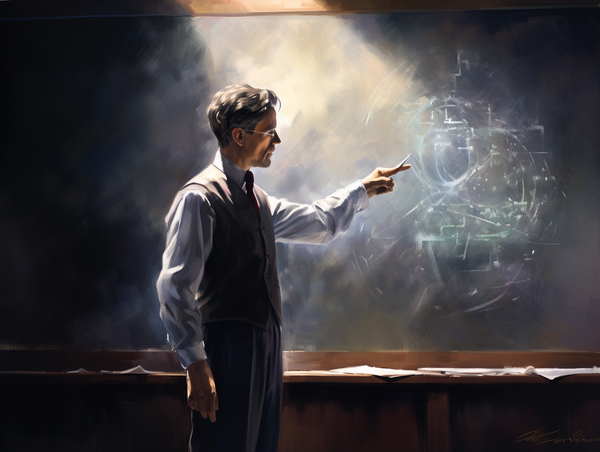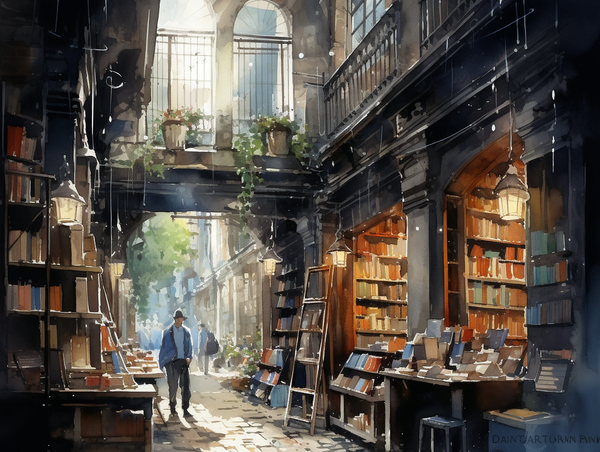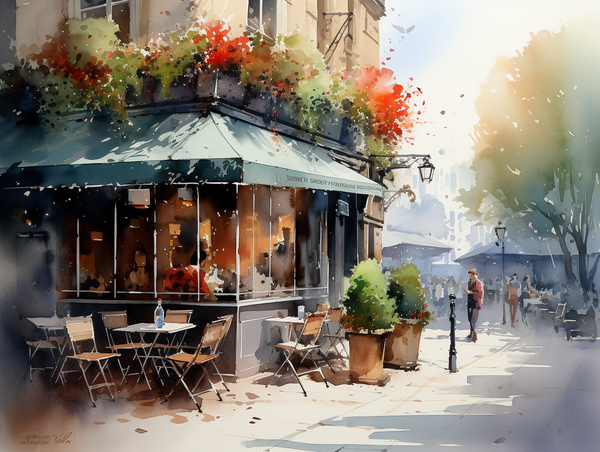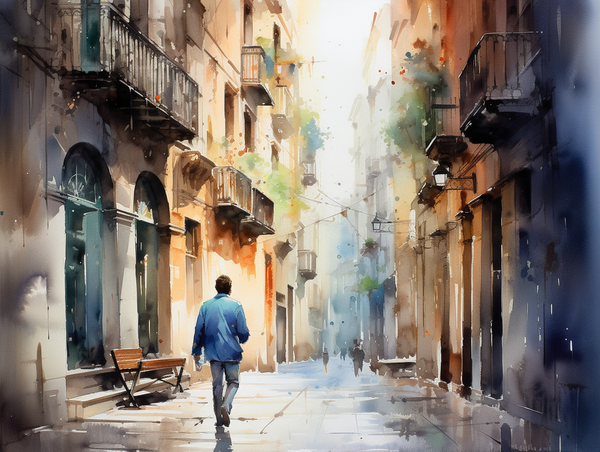The man who never left
The greatest journey is the one we take in accepting that all our movements, grand or small, are just elaborate preparations for the moment we must stop moving altogether.I chose to begin with stillness
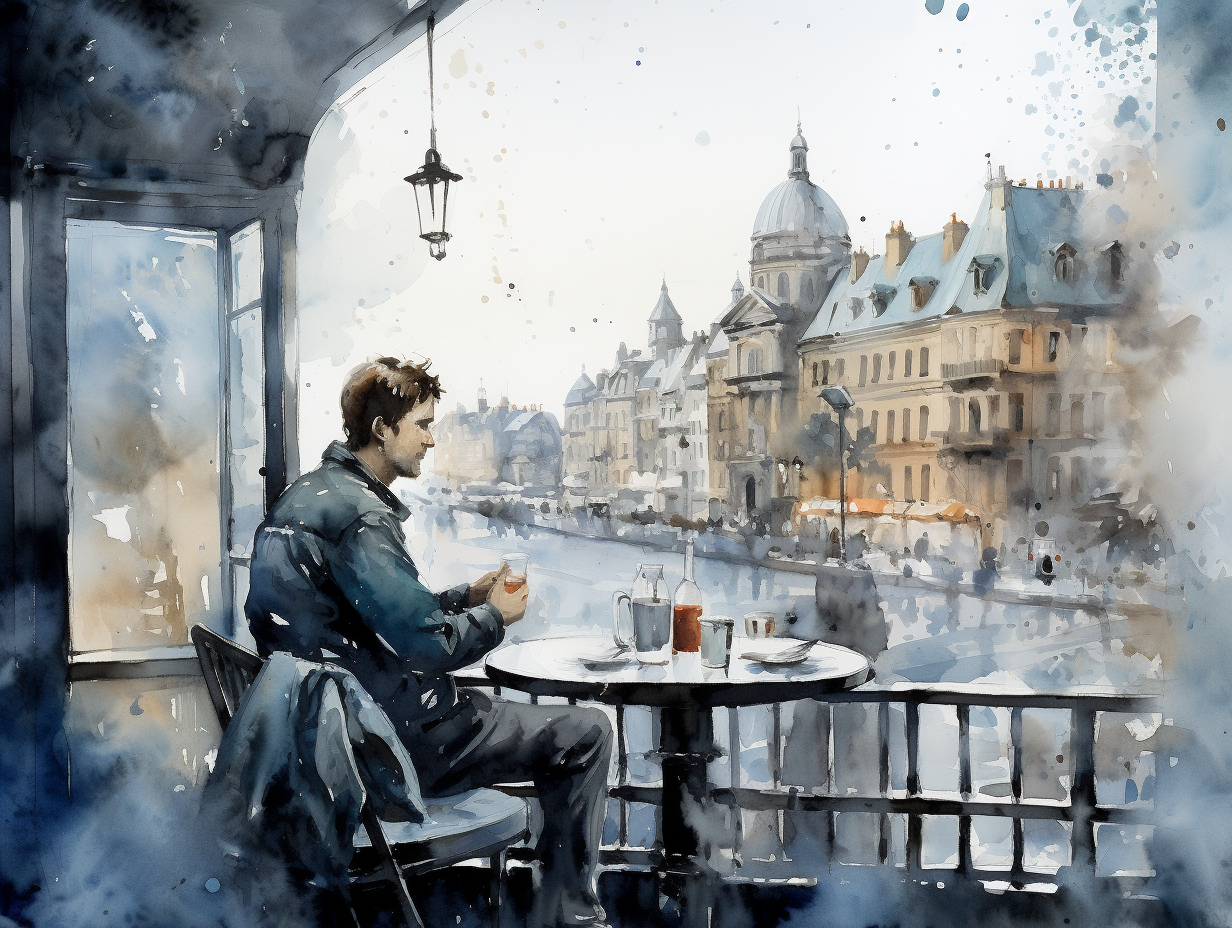
In a small shop in College Street in old Kolkata, lived Gafoor Chacha (Chacha - uncle). A sole proprietor of an old bookstore , squeezed between space and time. It was filled with travel guides and maps, though he had never traveled more than fifty miles away from his home.
Returning customers called him " Traveller Gafoor".
His shop window displayed well-worn Lonely Planet guides, their spines cracked and pages dog-eared, though he had purchased them all second-hand. Each morning, he would arrange them differently: Venice beside Varanasi, Tokyo next to Tel-Aviv, creating impossible geographies that existed only in his window display.
What fascinated me about Gafoor chacha wasn't his peculiar collection but the stories he told about places he'd never been. He spoke of the light in Provence as if he'd watched it paint Van Gogh's wheat fields golden. He described the taste of street-side pho in Hanoi with such precision that returning veterans swore he must have been there during the war.
"I've never left," he would say, smiling, when customers inevitably asked about his travels. "But I've been everywhere."
For years, I often visited his store cos it was quite eclectic. I watched him live this curious life, dispensing advice about train routes through Tibet and the best seasons to visit Patagonia. His recommendations were invariably correct, though drawn entirely from books and the stories of others.
One day, a wealthy patron, moved by Gafoor's evident passion, offered to fund him a trip anywhere in the world. Strangely Gafoor declined with such gentle certainty that the man left looking more enlightened than offended.
"Why?" I finally asked him one day, after years of wondering. "Why not see these places you know so intimately?"
He was shelving a new arrival about the Galápagos Islands, his fingers tracing the tortoise on its cover. "Do you know what happens when you finally visit a place you've dreamed about?" he asked. "Reality rushes in like a tide, washing away all the possibilities. Venice becomes one Venice, when in my mind it can be infinite."
He pulled down a guide to Paris and opened it to a random page. "Look here," he said, pointing to a picture of the Seine. "In this moment, I can see it in every season, every light. I can populate its banks with lovers from every era. The moment I go there, it becomes fixed in time."
One version crowds out all others."
"But isn't the real thing better than imagination?" I pressed.
He closed the book carefully. "When people travel, they're not really seeking places. They're seeking moments to fill in the gaps in their lives, spaces between who they are and who they would like to be. But those gaps are portable. We carry them with us wherever we go."
He walked to his window display and adjusted a guide to Kyoto that had fallen slightly askew. "Most travellers are running from the unavoidable fact that we're all temporary residents of life. They think movement is the same as transformation. But you can't outrun time by changing locations."
Here was a man who could describe the morning mist over Machu Picchu as if he'd breathed it, who spoke of Santorini's sunset with the intimacy of a lover, yet had never left the labyrinthine streets of old College Street.
I thought about all the travel I had done, rushing through countries like they were souvenirs on a checklist, collecting photographs as proof of existence. Truth be told at that instant, Gafoor's stillness and calm, steeped in his knowledge and worldview, seemed far more transformative than my wanderlust.
What remains of travel, after all?
Memory is a watercolour artist working with water-soluble truths. Time bleeds the edges, merges colours, until the sunset you saw in Greece becomes indistinguishable from one you might have imagined while reading Durrell's "Alexandria Quartet." The taste of that street-side pasta in Rome, the one you swore you'd never forget, fades until it's just words: al dente, olive oil, basilico.
Words you could have learned from any cookbook.
The reality of a moment dies the instant it passes into memory, and what survives is not the authenticated experience but the story we choose to tell about it.
Perhaps this is why we photograph everything now, desperately trying to trap authenticity in pixels, as if a digital image could somehow be more real than the shifting sands of memory. But even as we click the shutter, we're already transforming experience into artefact, reality into representation. The photograph becomes not proof of what was, but evidence of our fear that nothing truly remains of what we live through.
Gaffoor understood this.
He looked at me and added with a mysterious smile, "Staying still is its own form of time travel. Every day, the world comes to my doorstep in the form of returned travellers. They bring me their stories, their disappointments, their revelations. Through them, I've learned that the most exotic destination is often the space between someone else's expectations and their experience."
Gafoor chacha passed away one day.
Some of us who were regulars and who often congregated in his store for a cup of chai in the evenings, volunteered to clear out his shop to assist his family.
Behind his counter, we found a journal. It contained not travel plans but detailed accounts of conversations with his customers – their dreams before departure, their escapades upon return.
He had been cataloging not places but feelings and experiences.
The final entry read:
"The greatest journey is the one we take in accepting that all our movements, grand or small, are just elaborate preparations for the moment we must stop moving altogether.I chose to begin with stillness."
Gafoor chacha was too poor. He had no will but in is diary he had a small request. He wanted his collection of travel guides be donated to the local prison library. "For those who, like me, understand that the richest journeys require no motion at all," he wrote.
It's been 20 years and his shop is a café now, but they kept his window display tradition. Each morning, someone arranges travel guides in impossible geographies, marking a spot where one man found the whole world by refusing to chase it.
In the end, perhaps Gafoor chacha understood something essential about our restless species: that we travel not to find new places, but to lose our fear of staying still. In remaining stationary, he had achieved what most travellers spend their lives seeking – the ability to be completely present in one place, unburdened by the illusion that somewhere else holds the key to who we might become.
Recommended reading:
"The Art of Travel" by Alain de Botton
"On Travel" by Charles Dickens
"In Patagonia" by Bruce Chatwin
"A Sense of Place" by Wallace Stegner
About Me:
I write 'cos words are fun. More about me here. Follow @hackrlife on X

